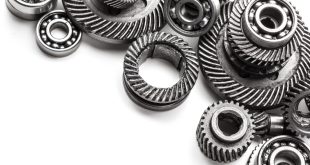Understanding CMU in Construction
Concrete Masonry Units (CMUs) are a fundamental component in construction, known for their durability and versatility. They are essential for constructing walls, foundations, and various structures. This article delves into different aspects of CMU, offering a comprehensive overview for both novices and seasoned professionals in the construction industry. Accurate estimating services play a crucial role in planning and budgeting for CMU-related projects.
1. What is a CMU?
A Concrete Masonry Unit (CMU) is a standard-size rectangular block used in building construction. CMUs are versatile and can be used for various structural and aesthetic purposes. They come in different sizes, shapes, and densities to meet specific requirements. The most common type is the concrete block, typically made from Portland cement, aggregates, and water. CMUs are known for their strength, durability, and fire resistance, making them a popular choice in construction.
2. Types of CMUs
CMUs come in various types, each designed for specific applications. Common types include standard concrete blocks, split-face blocks, and decorative blocks. Standard blocks are used for load-bearing walls, while split-face blocks provide an aesthetic, textured finish. Decorative blocks come in various shapes and patterns, used for enhancing the visual appeal of structures. Each type serves unique purposes, contributing to both the structural integrity and aesthetic value of buildings.
3. Applications of CMUs
CMUs are widely used in construction for their versatility and strength. They are commonly used in building foundations, retaining walls, fire-rated walls, and load-bearing walls. CMUs are also used in constructing schools, hospitals, commercial buildings, and residential homes. Their ability to withstand harsh weather conditions and provide excellent insulation makes them ideal for various structural applications.
4. Advantages of Using CMUs
CMUs offer numerous benefits in construction. They are durable, fire-resistant, and can withstand extreme weather conditions. CMUs provide excellent thermal and acoustic insulation, enhancing the energy efficiency and comfort of buildings. They are also cost-effective, easy to install, and require minimal maintenance. The versatility of CMUs allows for creative architectural designs, making them a preferred choice for many construction projects.
5. Manufacturing Process of CMUs
The manufacturing process of CMUs involves mixing Portland cement, aggregates, and water to create a concrete mixture. This mixture is then molded into blocks of various sizes and shapes using molds. The blocks are cured through a controlled process to achieve the desired strength and durability. Advances in technology have led to improved manufacturing techniques, resulting in high-quality CMUs that meet industry standards.
6. CMU vs. Other Building Materials
CMUs are often compared with other building materials like bricks, wood, and steel. Compared to bricks, CMUs are larger and quicker to install, reducing labor costs. Unlike wood, CMUs are fire-resistant and more durable. While steel offers high strength, CMUs provide better insulation and are more cost-effective. Each material has its pros and cons, but CMUs stand out for their versatility and overall benefits.
7. Environmental Impact of CMUs
The environmental impact of CMUs is a consideration in sustainable construction. CMUs are made from natural materials and can be recycled, reducing waste. The manufacturing process has become more eco-friendly, with efforts to reduce carbon emissions and energy consumption. Using CMUs in construction can contribute to LEED certification, promoting green building practices and sustainability.
8. Estimating Costs for CMU Projects
Accurate estimating services are crucial for budgeting CMU projects. Estimating costs involves considering material prices, labor, and project scope. CMU prices vary based on type, size, and quantity required. Labor costs depend on project complexity and location. Additional costs may include transportation, equipment, and site preparation. Effective cost estimation ensures projects stay within budget and avoid unexpected expenses.
9. Installation and Construction Techniques
Installing CMUs requires precise techniques to ensure structural integrity. The process involves laying blocks in a staggered pattern and using mortar to bond them together. Reinforcement, such as steel bars, may be added for additional strength. Proper alignment and leveling are essential to maintain stability. Advances in construction technology have introduced new methods, such as dry-stacking and interlocking blocks, improving efficiency and ease of installation.
10. Future Trends in CMU Construction
Future trends in CMU construction focus on sustainability, innovation, and efficiency. The development of eco-friendly CMUs using recycled materials and alternative cement formulations is on the rise. Technological advancements are leading to more efficient manufacturing processes and improved block designs. The integration of CMUs with smart building systems and modular construction techniques is also gaining popularity, promising a more sustainable and efficient future for the construction industry.
11. Structural Properties of CMUs
The structural properties of CMUs make them a reliable choice for building projects. CMUs exhibit high compressive strength, which allows them to support significant loads. Their density and composition provide excellent fire resistance, which is crucial for enhancing the safety of buildings. Additionally, CMUs have good sound insulation properties, making them suitable for noise-sensitive environments like schools and hospitals. Understanding these properties helps engineers and architects design resilient and safe structures.
12. CMU Block Sizes and Standards
CMU blocks come in various sizes and adhere to specific standards to meet different construction needs. Common sizes include 4-inch, 6-inch, 8-inch, and 12-inch blocks, with the dimensions referring to the block’s width. Standards for CMUs are set by organizations like ASTM International, which specifies requirements for compressive strength, density, and moisture content. Adhering to these standards ensures the quality and performance of CMUs in construction projects.
13. Maintenance and Durability of CMU Structures
CMU structures are known for their durability and low maintenance requirements. The inherent strength and weather resistance of CMUs contributes to their long lifespan. Routine maintenance involves inspecting for cracks, cleaning, and applying sealants to prevent moisture infiltration. Proper maintenance extends the life of CMU structures and preserves their aesthetic appeal. Understanding the maintenance needs of CMUs helps building owners and managers keep structures in optimal condition.
Conclusion
Concrete Masonry Units (CMUs) are indispensable in modern construction, offering numerous benefits such as durability, versatility, and cost-effectiveness. Understanding the various types, applications, and advantages of CMUs is essential for anyone involved in the construction industry. Accurate estimating services play a vital role in planning and executing CMU projects efficiently. As the industry evolves, CMUs will continue to adapt, contributing to sustainable and innovative construction practices.
 Daily Blogger News Stay updated with the latest trends and insights. Your reliable source for daily updates and information.
Daily Blogger News Stay updated with the latest trends and insights. Your reliable source for daily updates and information.







